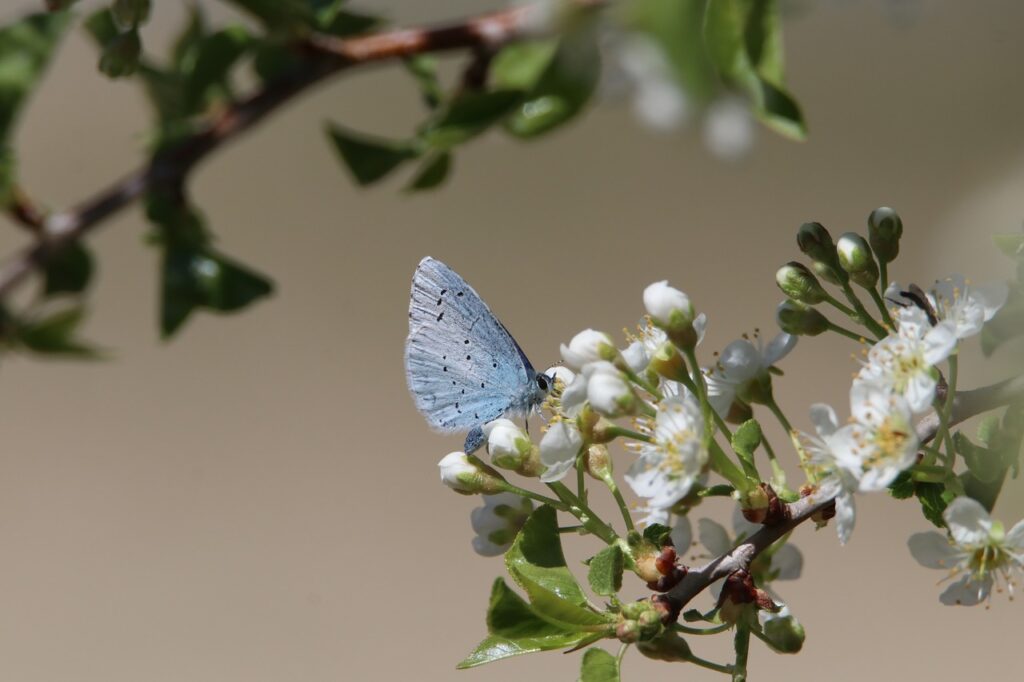Imagine a world where every ecosystem is like a carefully constructed puzzle, each species fitting perfectly into its designated spot. Now, envision removing just one of those puzzle pieces. Suddenly, the puzzle becomes incomplete, leaving gaps and spaces where the missing piece once resided. This is precisely why biodiversity is so crucial for ecosystems—it ensures that all the pieces of the puzzle are present, allowing nature to thrive and maintain a delicate balance. But why exactly is biodiversity important for ecosystems? Let’s explore the reasons that make it indispensable in sustaining the web of life.

Promotes Stability
Biodiversity is essential for promoting stability within ecosystems. One way it achieves this is by providing resilience against environmental changes. When there is a diverse range of species within an ecosystem, it increases the chances that some species will be able to adapt and survive in the face of changes such as extreme weather events or habitat loss. This resilience helps to maintain the overall stability of the ecosystem.
Furthermore, biodiversity plays a crucial role in increasing the resistance to diseases and invasive species. When there is a diverse array of species present, it decreases the likelihood of a single disease or invasive species wiping out an entire ecosystem. Different species have varied responses to diseases, parasites, and invasive species, and their interactions can limit the spread and impact of these threats. The presence of biodiversity safeguards against the collapse of ecosystems and ensures the continued functioning of ecological processes.
Enhances Ecosystem Services
Biodiversity is vital for enhancing ecosystem services, which are the benefits that humans obtain from ecosystems. One significant ecosystem service is supporting food production and security. A diverse range of species, including pollinators and predators, play essential roles in maintaining healthy and productive agricultural systems. Without biodiversity, we would face significant challenges in feeding our growing global population.
In addition, biodiversity improves water and air quality. Different species contribute to the purification of water through processes such as nutrient uptake, sediment retention, and filtration. Similarly, diverse ecosystems help in regulating air quality by absorbing pollutants and releasing oxygen. These ecosystem services are of immense importance in ensuring the sustainability of our essential natural resources.
Furthermore, biodiversity promotes nutrient cycling, which is crucial for the availability of essential nutrients in ecosystems. Various organisms, such as decomposers and nitrogen-fixing bacteria, assist in breaking down organic matter and converting nutrients into forms that can be readily taken up by plants. This cycle of nutrient availability is vital for the survival and growth of all organisms within an ecosystem.
Additionally, biodiversity enhances soil fertility. Different plant species contribute various nutrients to the soil through their root systems and leaf litter. This organic matter enriches the soil, improving its fertility and increasing its ability to support a diverse range of plant and animal life. Maintaining high levels of biodiversity is key to sustaining healthy and productive soils.
Lastly, biodiversity plays a significant role in climate regulation. Forests, for example, absorb carbon dioxide from the atmosphere and store it in plant biomass and soils. This helps to mitigate climate change by reducing greenhouse gas concentrations. Additionally, diverse ecosystems can provide cooling effects, regulate water cycles, and reduce the impact of extreme weather events. Protecting and preserving biodiversity is crucial for ensuring the sustainability of these important climate regulation mechanisms.

Maintains Ecological Balance
Biodiversity is essential for maintaining ecological balance within ecosystems. One way it achieves this is by controlling population dynamics. A diverse range of species within an ecosystem helps to regulate population sizes, preventing any one species from becoming overly dominant. This balance is crucial for the stability and functioning of ecosystems.
Furthermore, biodiversity supports predator-prey relationships. Predators play a vital role in controlling prey populations and preventing any one species from becoming too abundant. This regulation ensures that the ecosystem remains balanced and that resources are not overexploited. Maintaining these predator-prey relationships is important for the overall health and stability of ecosystems.
Moreover, biodiversity helps to regulate competition for resources. Different species within an ecosystem have varying resource requirements, and their interactions help to limit competition and ensure the equitable distribution of resources. This regulation prevents any one species from monopolizing resources and helps to maintain a healthy and balanced ecosystem.
Lastly, biodiversity maintains symbiotic interactions. Many species rely on mutually beneficial relationships with other species for their survival. For example, some plants rely on specific pollinators for successful reproduction, while certain species of birds rely on specific plants for food and habitat. Preserving biodiversity is crucial for ensuring the continued existence of these symbiotic interactions, which contribute to the overall stability and functioning of ecosystems.
Protects Genetic Diversity
Biodiversity plays a vital role in protecting genetic diversity within ecosystems. Genetic diversity refers to the variety of genetic material present within a species. Preserving genetic diversity is essential as it promotes the potential for adaptation and evolution in the face of changing environmental conditions.
Having a diverse pool of genetic material increases the likelihood that certain individuals within a species will possess traits that enable them to survive and reproduce in changing environments. This variety of traits allows for natural selection to occur, leading to the evolution of species that are better suited to their habitats. Therefore, preserving genetic diversity is essential for the long-term survival and resilience of species.
Additionally, biodiversity provides resources for medicine and biotechnology. Many pharmaceutical drugs and medical treatments are derived from natural sources, including plants and animals. By conserving biodiversity, we ensure that these resources are available for current and future medical advancements.
Protecting biodiversity also ensures the resilience of species and ecosystems. With increasing environmental pressures, such as climate change, preserving genetic diversity is crucial for species to adapt and survive. Biodiversity acts as a buffer, allowing ecosystems to withstand disturbances and maintain their functionality over time.

Promotes Ecotourism and Economic Benefits
Biodiversity promotes ecotourism, attracting tourists and nature enthusiasts from around the world. Many people are fascinated by the opportunity to witness and experience diverse ecosystems, unique species, and stunning natural landscapes. Preserving biodiversity not only provides a valuable recreational experience but also generates revenue for local communities.
Ecotourism creates job opportunities, particularly for local communities residing near biodiversity-rich areas. The presence of diverse ecosystems and unique species opens up avenues for employment in various sectors, such as guiding, hospitality, and wildlife conservation. These employment opportunities contribute to the socio-economic well-being of local communities and help alleviate poverty.
Furthermore, ecotourism generates revenue for local communities through tourism-related activities. Tourists and nature enthusiasts spend money on accommodations, meals, transportation, and other services, directly benefiting the local economy. This revenue can be reinvested in conserving biodiversity, supporting infrastructure development, and improving the overall quality of life for local communities.
Protecting and preserving biodiversity not only has intrinsic value but also provides substantial economic benefits through ecotourism. It is crucial to maintain and sustain these ecosystems to ensure the long-term economic viability of these regions.
Provides Ecological Aesthetics and Recreation
Biodiversity enhances the natural beauty and cultural heritage of ecosystems. Diverse ecosystems, with their vibrant array of plants, animals, and landscapes, provide breathtaking visual experiences. Preserving biodiversity ensures that future generations can continue to appreciate the intrinsic beauty of our natural surroundings.
Additionally, biodiversity offers various recreational activities for individuals and communities. Activities such as hiking, birdwatching, and photography provide opportunities to connect with nature and immerse oneself in the sights and sounds of diverse ecosystems. These recreational activities promote physical and mental well-being, fostering a deeper appreciation for the importance of preserving biodiversity.
Engaging in recreational activities within biodiverse environments also helps to create a sense of connection and stewardship towards nature. As people experience the beauty and wonders of these ecosystems firsthand, they are more likely to support conservation efforts and take action to protect and preserve biodiversity.
Supports Indigenous and Local Communities
Maintaining biodiversity supports indigenous and local communities by preserving their traditional knowledge and practices. Indigenous peoples often have deep-rooted connections to the land and possess generations of knowledge about the interactions between species, ecosystems, and the environment. This traditional knowledge is invaluable in understanding and managing biodiversity effectively.
By protecting biodiversity, we ensure that indigenous and local communities can continue to rely on ecosystems for their livelihoods and cultural identity. Many communities depend on diverse ecosystems for resources such as food, medicine, and materials for shelter and clothing. Preserving biodiversity ensures the availability of these resources, which are essential for sustaining traditional ways of life and cultural practices.
Moreover, the protection of biodiversity helps in safeguarding the rights and well-being of indigenous peoples. Many indigenous communities have spiritual, cultural, and historical connections to specific species or ecosystems. Preserving biodiversity allows these communities to maintain their cultural identity and practices, ensuring their overall resilience and well-being.
Maintains Biodiversity Hotspots
Conserving biodiversity is crucial for maintaining biodiversity hotspots, which are regions with exceptionally high levels of species diversity. These hotspots contain a significant number of endemic and endangered species, making them of immense importance for global biodiversity conservation.
By preserving biodiversity hotspots, we protect unique and endangered species from extinction. These regions serve as refuges for plants and animals that are found nowhere else on Earth. Preserving the integrity of these ecosystems is essential for maintaining the delicate balance of interconnected species and habitats that have evolved over thousands of years.
Furthermore, biodiversity hotspots preserve important ecological niches. These ecosystems often have intricate ecological relationships, with each species occupying a specific role within the ecosystem. Even the loss of a single species from these hotspots can have cascading effects, leading to imbalances and potential collapse of the entire ecosystem. Protecting biodiversity in these hotspots is vital to maintain the stability and functionality of these unique ecosystems.
Enhances Education and Scientific Research
Biodiversity enhances education and scientific research by improving our understanding of ecological processes. Studying diverse ecosystems and the relationships between species provides valuable insights into the intricate workings of nature. By unraveling the complex interactions within ecosystems, we gain knowledge that can guide conservation efforts and inform sustainable practices.
Additionally, biodiversity offers insights for medical and technological advancements. Many of our modern medicines, including antibiotics and anticancer drugs, are derived from natural compounds found in plants and animals. By preserving biodiversity, we ensure that these potential sources of medicine and biotechnology remain available for future research and development.
Scientific research is also enriched by the study of biodiversity. By exploring the evolutionary processes and adaptations of different species, we gain a deeper understanding of the natural world and our place within it. The knowledge acquired through scientific research contributes to a broader understanding of ecology, genetics, and the interdependencies of life.
Contributes to Sustainable Development
Biodiversity plays a significant role in contributing to sustainable development. It supports the achievement of Sustainable Development Goals (SDGs) established by the United Nations. These goals include eradicating poverty, promoting sustainable agriculture, ensuring clean water and sanitation, combating climate change, and conserving life on land.
By preserving biodiversity, we contribute to long-term environmental and economic benefits. Maintaining healthy ecosystems supports sustainable agriculture, ensures the availability of clean water, mitigates climate change, and safeguards life on land. These contributions are essential for promoting sustainable development and ensuring the well-being and prosperity of present and future generations.
In conclusion, biodiversity is crucial for the stability, resilience, and functioning of ecosystems. It enhances ecosystem services, maintains ecological balance, protects genetic diversity, promotes ecotourism and economic benefits, provides ecological aesthetics and recreation, supports indigenous and local communities, maintains biodiversity hotspots, enhances education and scientific research, and contributes to sustainable development. Preserving and protecting biodiversity is essential for the survival of the natural world and the well-being of both humans and the countless species that depend on healthy and diverse ecosystems. It is a shared responsibility that requires collective action to ensure a sustainable and thriving planet for generations to come.




